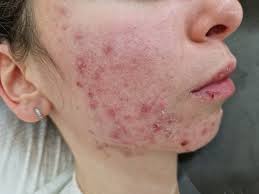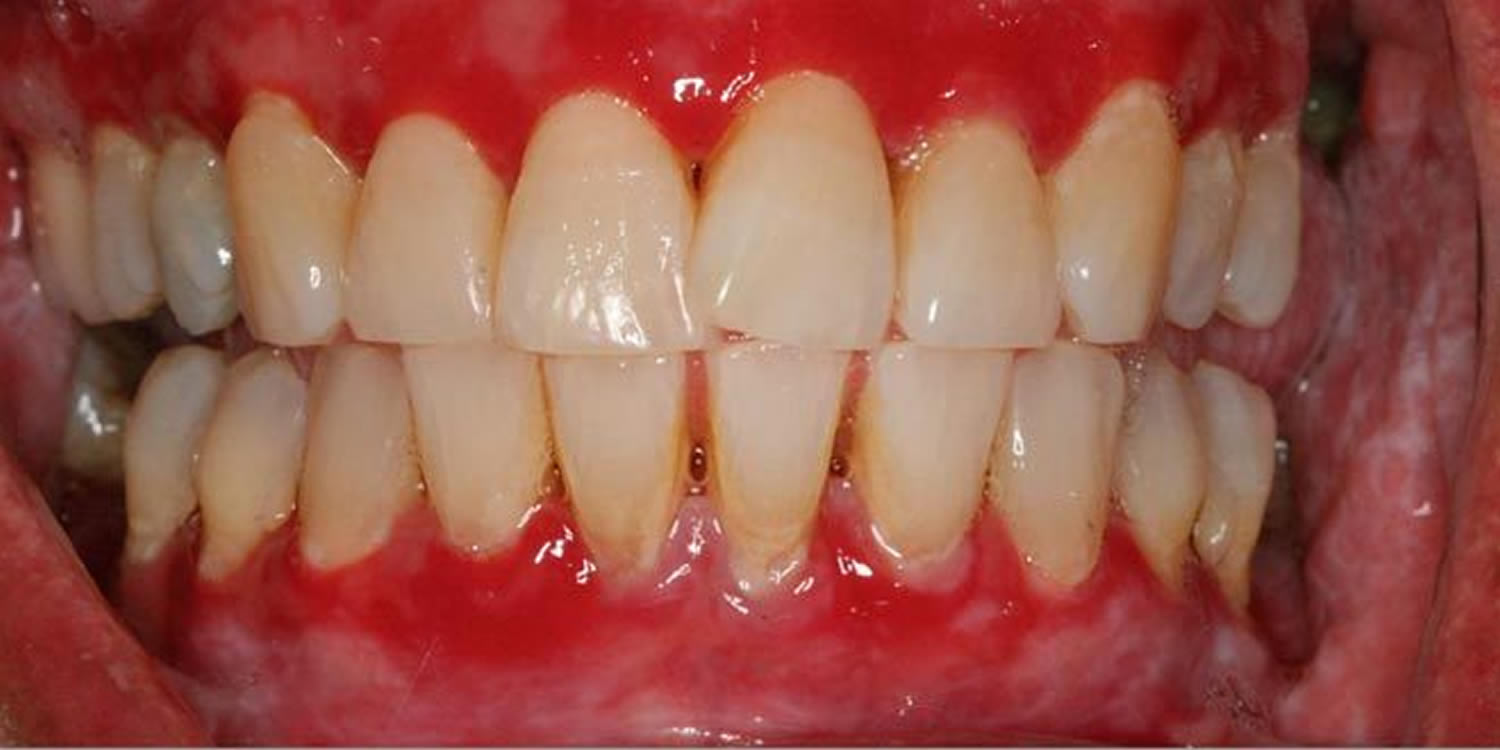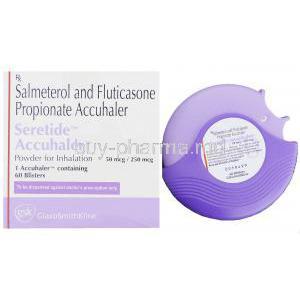Menthol/ Pine Oil/ Thymol
- 1. Introduction
- 2. Composition and Mechanism of Action
- 3. Approved Uses and Indications
- 4. Off-Label Uses and Experimental Applications
- 5. Dosage and Administration
- 6. Side Effects and Safety Profile
- 7. Drug Interactions and Contraindications
- 8. Special Precautions and Warnings
- 9. Use in Specific Populations
- 10. Overdose and Toxicity Management
- 11. Storage and Handling Precautions
- 12. Conclusion
1. Introduction
Overview of Menthol, Pine Oil, and Thymol
Menthol, pine oil, and thymol are bioactive compounds extensively utilized in medicinal, cosmetic, and therapeutic applications. Each possesses distinct biochemical properties that contribute to their widespread usage:
- Menthol: A cyclic monoterpene alcohol found naturally in peppermint and other mint oils, prized for its cooling, analgesic, and decongestant effects.
- Pine Oil: Derived from pine needles, this essential oil exhibits potent antiseptic, anti-inflammatory, and expectorant properties.
- Thymol: A phenolic monoterpene obtained from thyme, known for its antimicrobial, antifungal, and antioxidant activities.
Historical Use in Traditional and Modern Medicine
For centuries, these compounds have been integral to various medicinal traditions:
- Menthol: Utilized in ancient Chinese and Ayurvedic medicine for treating respiratory ailments and providing pain relief.
- Pine Oil: Recognized in European folk medicine for its disinfectant properties and effectiveness against respiratory infections.
- Thymol: Extensively used in ancient Egyptian and Greek medicine as a preservative and an antiseptic for wounds and infections.
Importance in Pharmaceutical, Cosmetic, and Therapeutic Applications
These compounds play a pivotal role in various industries due to their pharmacological versatility:
- Pharmaceuticals: Formulated in topical analgesics, expectorants, antiseptics, and antimicrobial solutions.
- Cosmetics: Integrated into skincare, haircare, and personal hygiene products for their therapeutic benefits.
- Therapeutics: Commonly found in aromatherapy, dental hygiene solutions, and respiratory health treatments.
2. Composition and Mechanism of Action
Chemical Composition of Menthol
Menthol is a type of cyclic terpenoid alcohol that can be found naturally or created synthetically in two forms. The L metabolite is considered potent due to its cooling properties.
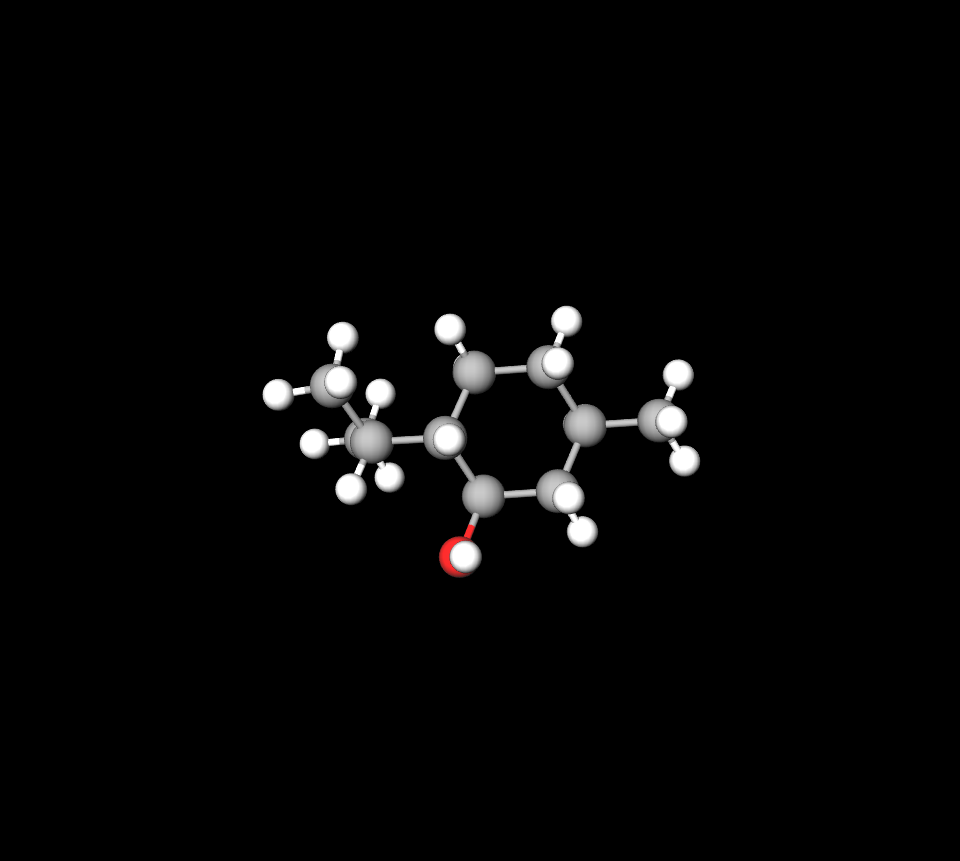
Chemical Composition of Pine Oil
The essence of oil consists of a mix of monoterpenes such as alpha pinene and beta pinene along with limonene and bornyl acetate that play a role in its ability to act as an antiseptic and reduce inflammation.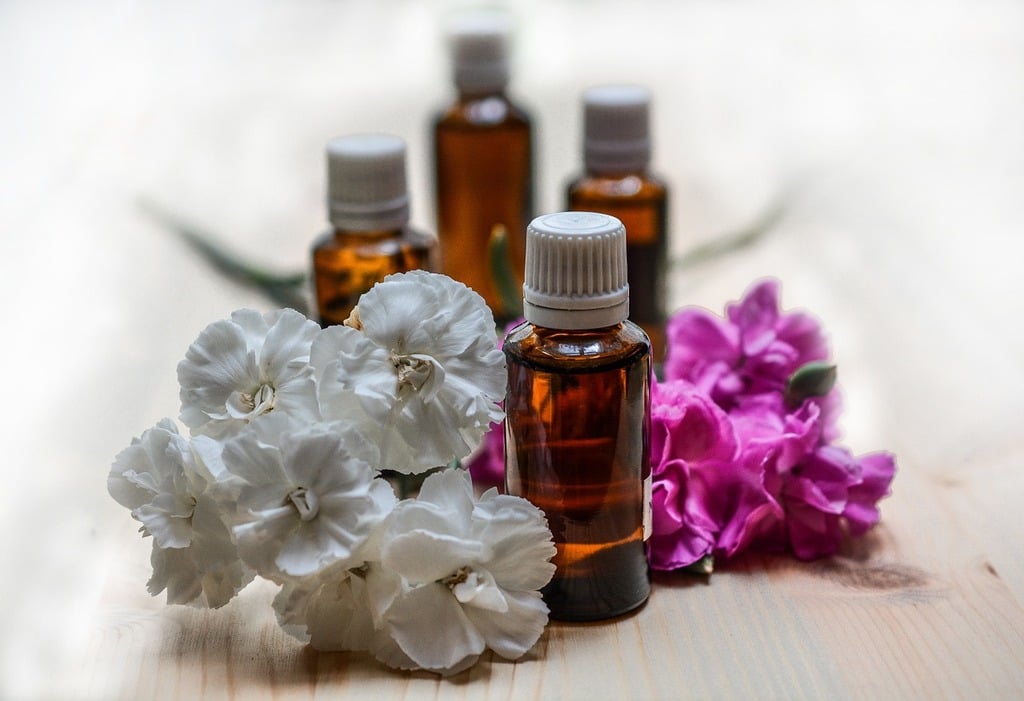
Chemical Composition of Thymol
Thymol (chemical formula; C10 H14 O ) is a type of phenol that bears a resemblance to carvacrol in structure and functions by disturbing cell membranes to exhibit strong antimicrobial properties.
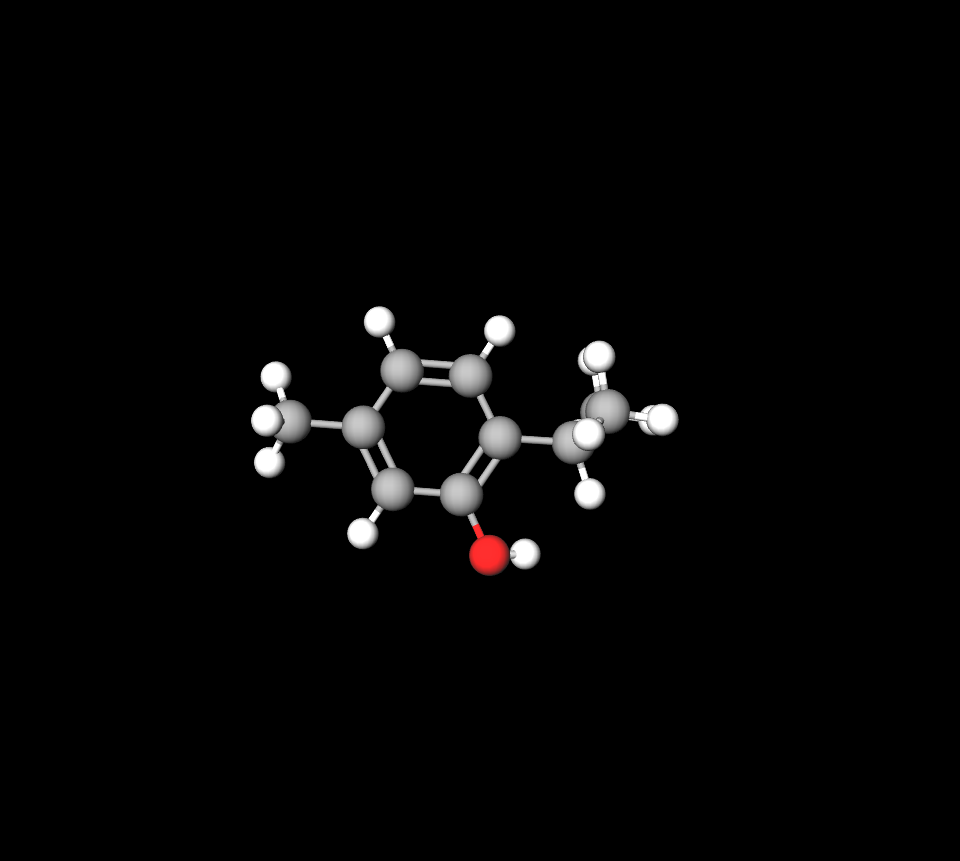
How Menthol Works in the Body
When menthol interacts with receptor melastatin 9 (TRPM9), it triggers a sense of coolness and provides a gentle numbing effect in the affected area.
How Pine Oil Works in the Body
Essential oil from trees works as a decongestant by encouraging the production of mucus in the system while also fighting off bacterial and fungal infections with its natural antimicrobial abilities.
How Thymol Works in the Body
Thymol interrupts the cell walls of bacteria and fungi, preventing them from multiplying. Additionally, it possesses inflammatory properties that boost its healing capabilities.
3. Approved Uses and Indications
Menthol Uses
Topical Analgesic for Pain Relief
Treatment for Cough and Cold
Anti-Itch and Cooling Agent in Dermatology
Using lotions and cream with menthol can help soothe itching caused by bug bites and minor burns.
Use in Oral Care Products
Pine oil Uses
Antiseptic and Disinfectant Properties
Use in Respiratory Therapy and Decongestion
Application in Skin Care and Wound Healing
Pine oil reduces inflammation and promotes healing in eczema, acne, and minor cuts.
Thymol Uses
Antimicrobial Agent in Oral Hygiene
Antifungal Properties in Dermatology
Thymol-based formulations are effective in treating fungal skin infections such as athlete's foot.
Use in Gastrointestinal Health
Thymol is commonly employed in remedies to fight against infections and support the well-being of the digestive system.
4. Off-Label Uses and Experimental Applications
Menthol in Sports and Muscle Recovery
Pine Oil as an Alternative Antimicrobial Agent
Initial studies indicate that pine oil could potentially be used as a substitute for antibiotics.
Thymol in Potential Anti-Cancer Research
Research suggests that thymol might display properties against cancer cells by encouraging apoptosis.
Alternative and Holistic Uses of These Compounds
These mixtures are commonly utilized in aromatherapy practices and, as cleaners and organic bug deterrents.
5. Dosage and Administration
Recommended Dosage for Different Forms (Topical, Oral, Inhalation)
The amount needed may differ based on how it's taken in, and it's an idea to do a patch test for skin applications.
Correct Method of Application for Maximum Effectiveness
Using the methods of application ensures that the body absorbs the product effectively, resulting in therapeutic advantages.
Duration of Use and Safety Considerations
Please ensure monitoring of prolonged use to prevent any allergic reactions or harmful effects on the body.
6. Side Effects and Safety Profile
Common Side Effects of Menthol, Pine Oil, and Thymol
Skin Irritation and Allergic Reactions
Respiratory Effects in Sensitive Individuals
Breathing in the air could cause irritation in the airways or bronchospasm.
Gastrointestinal Discomfort
Consumption of amounts orally could lead to feelings of nausea or discomfort in the stomach.
7. Drug Interactions and Contraindications
Medications That May Interact with Menthol, Pine Oil, or Thymol
Possible effects include blood thinners and calming medications, as specific types of antibiotics could occur.
Contraindications for Use in Certain Medical Conditions
Avoid using this product if you have asthma, severe allergies, or liver issues.
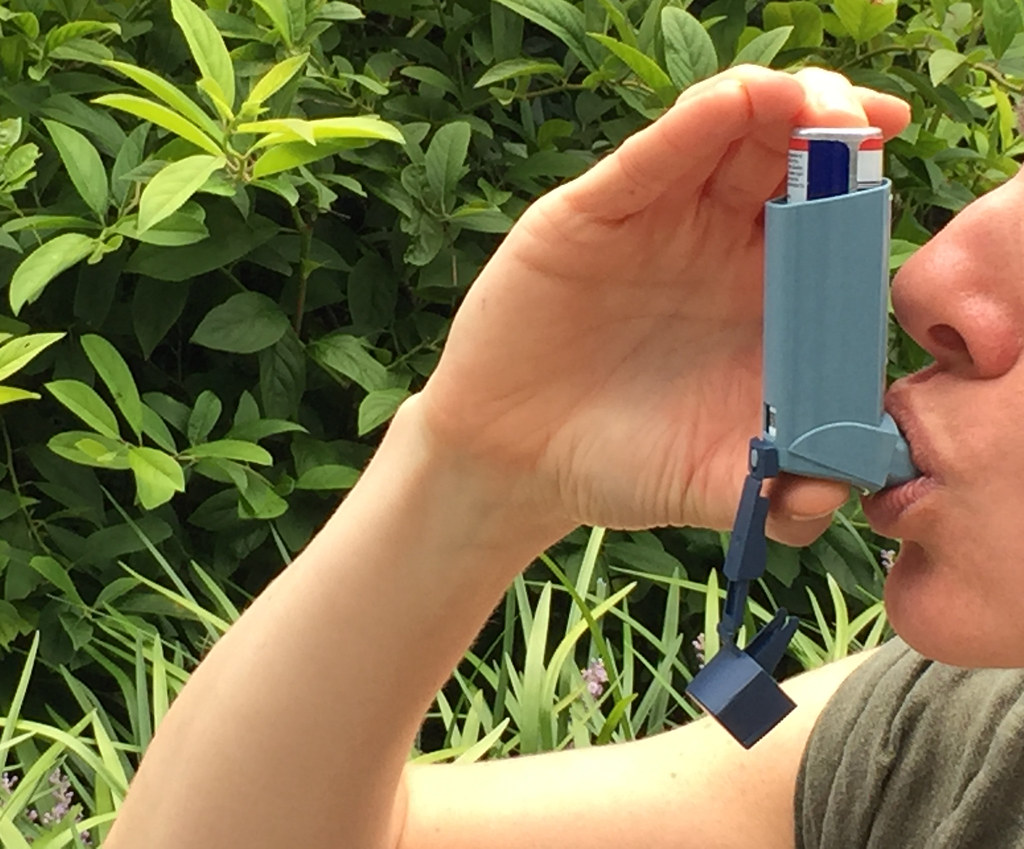
8. Special Precautions and Warnings
Careful Administration in Patients with Respiratory Conditions
Menthol, pine oil, and thymol, though widely regarded as therapeutic, may pose risks for individuals with pre-existing respiratory ailments. These compounds, particularly when inhaled or applied near the nasal passages, can provoke bronchospasms in sensitive individuals, such as those with asthma or chronic obstructive pulmonary disease (COPD).
- Excessive inhalation of menthol vapors may induce paradoxical airway constriction.
- Pine oil's volatile nature can trigger coughing and airway irritation in patients with respiratory hypersensitivity.
- Thymol, while antimicrobial, may cause temporary breathlessness in individuals with compromised pulmonary function.
Medical consultation is advised before using these compounds in any form for individuals with underlying respiratory conditions.
Risk of Accidental Ingestion in Children
The strong aroma and cooling sensation of menthol, pine oil, and thymol may attract children, increasing the risk of accidental ingestion. Even small amounts can be toxic, leading to gastrointestinal distress, central nervous system depression, or respiratory distress.
- Menthol overdose can cause nausea, dizziness, and confusion.
- Pine oil ingestion may lead to vomiting, abdominal pain, and chemical pneumonitis.
- Thymol in high doses can result in hepatotoxicity and metabolic disturbances.
Products containing these compounds should be stored out of children's reach in childproof containers.
Handling and Storage Precautions
Proper handling of menthol, pine oil, and thymol ensures their efficacy while minimizing risks. These compounds, especially in concentrated forms, require careful storage:
- Store in tightly sealed containers away from heat and direct sunlight.
- Avoid prolonged exposure to air, as oxidation may degrade potency.
- Wear gloves when handling concentrated solutions to prevent skin irritation.
Adherence to these guidelines ensures stability and effectiveness throughout their shelf life.
Potential Sensitivity in Individuals with Skin Conditions
While menthol, pine oil, and thymol exhibit therapeutic dermatological properties, individuals with pre-existing skin conditions may experience heightened sensitivity:
- Menthol can exacerbate eczema and dermatitis due to its cooling effect.
- Pine oil may cause irritation in individuals with psoriasis or highly reactive skin.
- Thymol, despite its antimicrobial benefits, may trigger contact dermatitis in susceptible individuals.
A patch test is recommended before extensive topical application.
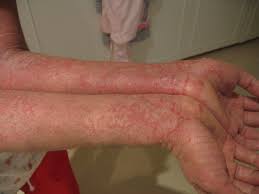
9. Use in Specific Populations
Administration in Elderly Patients
Elderly individuals may exhibit increased sensitivity to menthol, pine oil, and thymol due to age-related physiological changes. Their metabolism and excretion processes may slow, leading to prolonged systemic effects.
- Menthol's cooling sensation may cause excessive skin dryness and irritation.
- Pine oil absorption through the skin can lead to systemic toxicity in frail individuals.
- Thymol ingestion may interfere with liver function in elderly patients with hepatic impairment.
Dosage adjustments and medical supervision are advisable when prescribing these compounds to older adults.
Administration to Pregnant Women and Nursing Mothers
The safety of menthol, pine oil, and thymol during pregnancy and lactation remains a subject of ongoing research. While topical and inhalational use is generally considered safe, systemic absorption may pose risks.
- Menthol, when ingested in large quantities, may affect fetal heart rate.
- Pine oil contains terpenes that could cross the placental barrier.
- Thymol may interfere with hormone regulation and lactation.
Pregnant and nursing mothers should consult healthcare professionals before using products containing these compounds.
Administration to Children and Infants
Children and infants have heightened sensitivity to menthol, pine oil, and thymol, necessitating caution:
- Menthol applied near the nostrils can cause reflexive apnea in infants.
- Pine oil ingestion may result in neurological symptoms such as seizures.
- Thymol can disrupt gastrointestinal flora in young children.
Pediatric formulations should adhere to strictly controlled dosages.
10. Overdose and Toxicity Management
Symptoms of Overdose in Different Routes of Administration
Excessive exposure to menthol, pine oil, or thymol can result in systemic toxicity:
- Inhalation: Shortness of breath, dizziness, and neurological depression.
- Ingestion: Nausea, vomiting, convulsions, and central nervous system depression.
- Topical application: Skin burns, extreme cooling sensation, and localized irritation.
Immediate First Aid Measures and Treatment
Prompt action is crucial in managing toxicity:
- For inhalation exposure, move to fresh air immediately.
- In case of ingestion, administer activated charcoal and seek medical attention.
- For skin exposure, rinse thoroughly with lukewarm water.
When to Seek Emergency Medical Attention
Emergency care is necessary if the affected individual exhibits:
- Severe respiratory distress or apnea.
- Seizures or loss of consciousness.
- Signs of organ failure, including jaundice or renal dysfunction.
11. Storage and Handling Precautions
Optimal Storage Conditions for Preserving Potency
To maintain the efficacy of menthol, pine oil, and thymol:
- Store in amber or dark glass containers to minimize light-induced degradation.
- Keep in a cool, dry place, ideally below 25°C.
- Avoid exposure to excessive humidity to prevent crystallization.
Safe Handling and Disposal of Products Containing These Compounds
Proper handling ensures both safety and environmental responsibility:
- Wear protective gloves when handling concentrated forms.
- Avoid direct inhalation of vaporized forms.
- Dispose of expired products in compliance with local hazardous waste regulations.
Shelf Life and Stability Considerations
The shelf life varies based on formulation:
- Menthol remains stable for up to three years if stored properly.
- Pine oil can degrade within two years due to oxidation.
- Thymol maintains its antimicrobial potency for up to five years in sealed conditions.
12. Conclusion
Summary of Benefits and Risks
Menthol, pine oil, and thymol offer numerous medicinal benefits, ranging from pain relief and respiratory support to antimicrobial protection. However, improper use or overdose can lead to adverse effects.
Best Practices for Safe Use
- Follow recommended dosages for all applications.
- Conduct patch tests before topical use.
- Store securely away from children and pets.
Future Research and Emerging Applications
Current research is delving into the possibilities of using these compounds in cancer treatment and safeguard the health of our brains while also looking into their potential as ways to fight off infections. In the future, we could see these compounds being used in more ways to help people with different health issues.
Menthol/ Pine Oil/ Thymol FAQ
- What is menthol used for?
- Is menthol good for a cough?
- What are the uses of menthol tablets?
- What are the benefits of menthol?
- What is pine oil used for?
- What are the side effects of pine oil?
- Is pine oil good for pain?
- Is pine oil good for cough?
- Is pine oil an antifungal?
- What is thymol used for?
- Is thymol a good antibacterial?
- What are Menthol, Pine Oil, and Thymol commonly used for?
- What is the primary function of Menthol?
- How does Pine Oil work in these products?
- Can these ingredients be used for nasal congestion?
- Are Menthol/ Pine Oil/ Thymol safe for children?
- Can Menthol, Pine Oil, and Thymol cause skin irritation?
- Can Menthol/ Pine Oil/ Thymol be ingested?
- Can Menthol/ Pine Oil/ Thymol help with muscle aches?
- What are the benefits of inhaling these Menthol/ Pine Oil/ Thymol?
- Can Menthol/ Pine Oil/ Thymol be used in aromatherapy?
- Can Menthol/ Pine Oil/ Thymol be used during pregnancy?
- What is menthol used for?
- What are the benefits of menthol?
- What is pine oil used for?
- What are the side effects of pine oil?
- Is pine oil good for cough?
- Is pine oil an antifungal?
- What is thymol used for?
- Is thymol a good antibacterial?
- Are Menthol/ Pine Oil/ Thymol natural?
What is menthol used for?
Menthol is a component that can be found in mint plants, like peppermint and spearmint; it provides a feeling and is commonly utilized for alleviating slight discomfort and irritation.
Is menthol good for a cough?
Another compound that catches attention for its cough properties is menthol, which is commonly included in cough syrups and throat lozenge formulations to help ease coughing symptoms.
What are the uses of menthol tablets?
Treating symptoms, like a nose or congestion, can help relieve discomfort, such as sneezes and itchy or watery eyes, while also easing breathing by reducing airway inflammation.
What are the benefits of menthol?
Menthol is known for its ability to improve breathing function and soothe the skin while also offering relief from stomach discomforts.
What is pine oil used for?
People commonly use oil for purposes such as cleaning surfaces and disinfecting areas to kill germs and viruses or repel insects effectively—the herbicidal properties of oil work by altering the coating on plants and causing them to dry out. Additionally, pine oil serves as a disinfectant, with antiseptic qualities to maintain cleanliness in different settings.
What are the side effects of pine oil?
Symptoms may include redness, hives, itchiness, dry skin, swelling, and peeling skin.
Is pine oil good for pain?
A little bit
Is pine oil good for cough?
Pine tree oil is commonly included in cough syrups for its benefits, which include helping with coughs and balancing the system while also having anti-inflammatory and germicidal properties.
Is pine oil an antifungal?
The antibacterial properties, along with the antioxidants and wound-healing abilities of needle oil, have been observed in studies involving animals.
What is thymol used for?
These medicines are commonly used to treat conditions in the system and have properties that help with inflammation and fight off viruses and bacteria.
Is thymol a good antibacterial?
Thymol is known to be effective against a range of bacteria, including both gram-negative and gram-negative types.
What are Menthol, Pine Oil, and Thymol commonly used for?
These are often found in pain relievers for areas of the body, like joints and muscles well as, in medications that help with nasal congestion and coughs.
What is the primary function of Menthol?
Using menthol can give a cooling feeling and provide some relief for pains and congestion.
How does Pine Oil work in these products?
The use of Pine Oil serves as a disinfectant and aids in easing congestion by expanding the air passages.
Can these ingredients be used for nasal congestion?
They are commonly employed in inhalers or ointments to ease nasal blockages.
Are Menthol/ Pine Oil/ Thymol safe for children?
Use these products carefully with children. Make sure to use ones specifically made for kids under the guidance of a pediatrician.
Can Menthol, Pine Oil, and Thymol cause skin irritation?
They might lead to skin irritation and trigger responses in certain people, particularly those with sensitive skin.
Can Menthol/ Pine Oil/ Thymol be ingested?
Typically meant for inhalation application only, consuming them could pose risks to health.
Can Menthol/ Pine Oil/ Thymol help with muscle aches?
Menthol is commonly added to creams and ointments to help alleviate muscle soreness and discomfort.
What are the benefits of inhaling these Menthol/ Pine Oil/ Thymol?
Breathing in those vapors can assist in opening up the passages and easing congestion.
Can Menthol/ Pine Oil/ Thymol be used in aromatherapy?
Pine Oil and Menthol are commonly utilized in aromatherapy due to their invigorating and congestion properties.
Can Menthol/ Pine Oil/ Thymol be used during pregnancy?
Please seek advice from healthcare before using items that include these components while pregnant or nursing.
What is menthol used for?
The cooling sensation of menthol is naturally occurring in mint plants, like peppermint and spearmint. It is commonly used to alleviate discomfort and irritation.
What are the benefits of menthol?
Menthol is known for its ability to improve breathing and soothe stomach discomfort while also offering benefits for the skin.
What is pine oil used for?
People commonly use oil for purposes such as cleaning surfaces and disinfecting them, as well as acting as a sanitizer or insecticide to combat pests effectively in households or gardens. Additionally, pine oil can also function well as an herbicide by altering the protective waxy layer of plants, leading to their dehydration. Moreover, pine oil serves as a disinfectant with properties
What are the side effects of pine oil?
Redness, hives, itching, dry skin, swelling, and peeling skin are some symptoms of skin conditions and allergies.
Is pine oil good for cough?
Pine tree oil is frequently included in cough syrup for its benefits; it helps with expectoration and calms the system while also possessing anti-inflammatory and germicidal properties.
Is pine oil an antifungal?
Pine needle oil has been reported to possess antioxidant properties as well as the ability to treat fungal infections and promote wound healing in animals.
What is thymol used for?
They are commonly used in treating conditions affecting the system and have properties such as expectorant action and anti-inflammatory properties against viruses and bacteria.
Is thymol a good antibacterial?
Both gram-positive and gram-negative bacteria can be effectively combated by thymol.
Are Menthol/ Pine Oil/ Thymol natural?
Indeed! Menthol originates from mint plants; Pine Oil comes from trees;. Thymol is extracted from thyme herbs.






